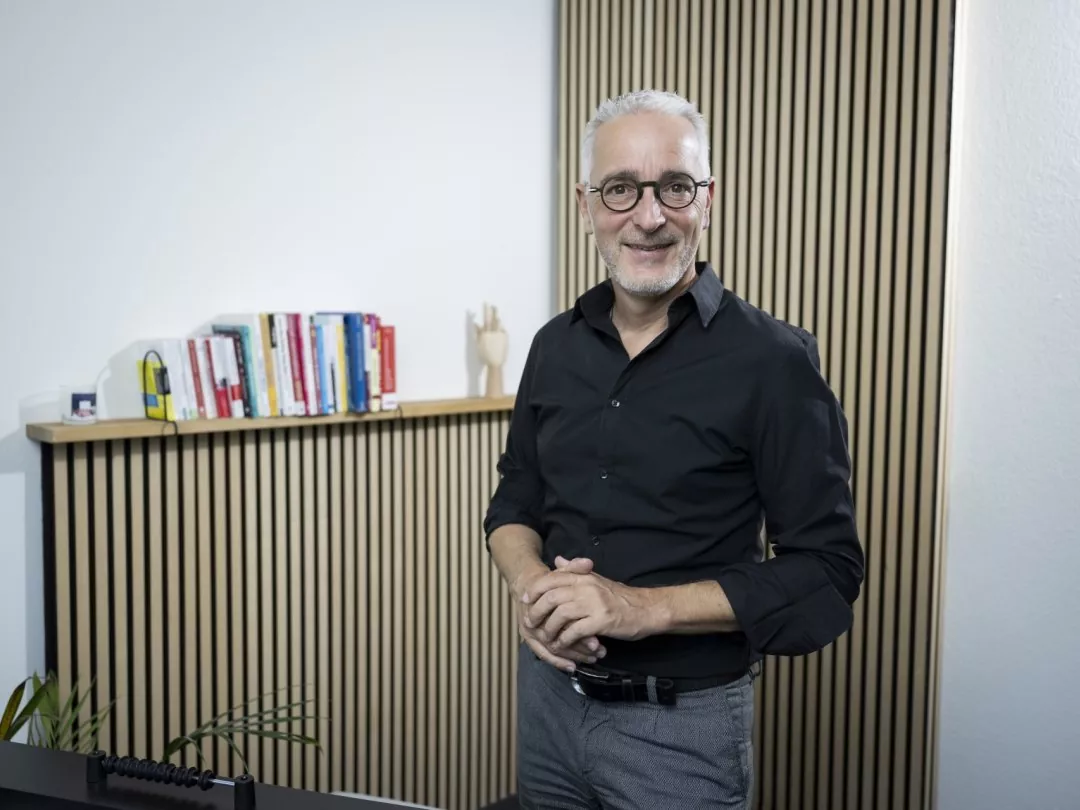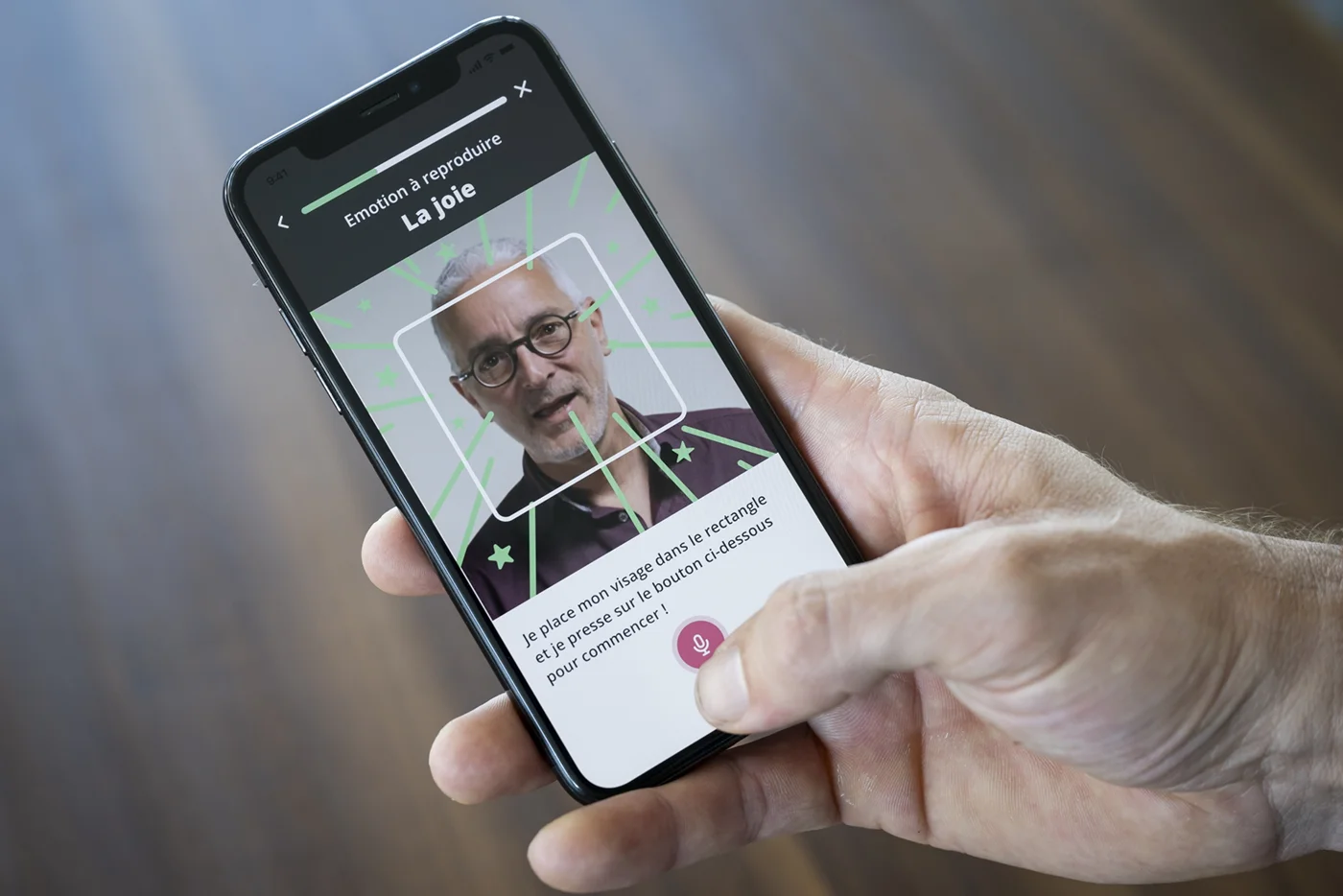ArcInfo - By Tiphaine Bühler
BCN INNOVATION AWARD - Do you dream of speaking fluently and convincingly? With the TALK.SWISS application, you can get immediate feedback on your speaking skills and train yourself in a fun way.

One of the aims of Banque Cantonale Neuchâteloise (BCN) is to maintain a dynamic, forward-looking economic fabric. With this in mind, in 2008 it created the Prix BCN Innovation to increase its support for the canton's development.
This award is intended as a springboard for innovative local projects, so that they can flourish and in turn contribute to the virtuous circle of creating ideas, value and jobs.
With a unique prize fund of CHF 150,000, the BCN Innovation Award is one of the biggest in Switzerland. As a partner of the event, "ArcInfo" went to meet the three 2023 finalists: Talk.swiss, Solarsplit and SAVinsight.
Between now and 19 October, when the winners are announced, your daily newspaper will be featuring portraits of these start-ups, which are active in communications, sustainable development and watchmaking after-sales services respectively. Find out more about the human and technological adventures behind these innovations.
But speaking requires a great deal of effort. How do you know if you're expressing yourself well, if you've managed to capture attention and get your message across? Above all, how can you improve if you're not at ease with oral communication? These are not insignificant questions when you consider that the average cost of poor communication in a company is 420,000 Swiss francs per year per 100 people, according to a 2017 study by the World Economic Forum.
Objective analysis
The Talk.swiss mobile solution is designed to help you develop your speaking skills through easy, independent training. "To my knowledge, there is currently no in-depth, objective measurement tool that analyses the way you speak with the help of artificial intelligence", points out the founder of the Marin-based company. "Our technology gives immediate feedback and suggests areas for improvement via your smartphone." Master classes, with a real-life trainer, enhance the offer.
We fall in love, we negotiate, we solve problems,
you engage someone with your word. Laurent Vuarraz Voisin, CEO of TALK
Twelve measurement indicators are taken into account. Verbal (the words and phrases used), paraverbal (voice, speed, disturbances) and non-verbal (emotions) are analysed. "You get a numerical assessment of your oral skills. It's useful both before you speak, when you're preparing a speech, and afterwards," explains Laurent Vuarraz Voisin. Fun training microcapsules, via the application, then target your needs.
Expanding in Europe
Behind every new technology is an entrepreneurial adventure. Talk.swiss began in Orbe back in 2011. Laurent Vuarraz Voisin was on his own at the time. His first clients were Olivier Sandoz, deputy director of the Fédération des entrepreneurs romands, and Blaise Matthey, a member of the committee of the Union patronale suisse.
"Back then, I would film them and give them a 15-page report," smiles the CEO. "Today, they can do everything with their phone and get immediate feedback. Our technology is a magic mirror! What's more, the analysis is much more refined thanks to the development of data science." Talk.swiss does not store data, and users can delete it at any time.
Entirely financed by Laurent Vuarraz Voisin, the company will be setting up in the canton of Neuchâtel in 2020, initially at Microcitythen in Marin. It now has a dozen employees: developers, trainers in three languages and sales staff. Its customers are mainly banks, insurance companies and large groups. "Over the past year, demand has been dazzling," says a boss who is ready to take on the European market.
By 2024, Talk.swiss intends to expand into Francethen in Germany. This is a new stage that requires funding, which the company hopes to obtain by winning the BCN Innovation Prize. "Our technology is ready. We can develop a strategic training programme for 100,000 people in 20 languages", stresses the perfectionist. Training sales people, HR people, managers or any employee of a company to express themselves convincingly will become easy.
So if there's one candidate who'll be at ease at the BCN Innovation Award ceremony on 19 October, it'll be Laurent Vuarraz Voisin. Isn't he? "We talked about that this morning with Simon and Romain, the Talk.swiss developers who will be on stage with me," laughs the radio personality. "Maybe we'll do a little coaching first.
Tell me how to talk better

What does Talk's numerical analysis show? Language disturbances are counted. If you have more than five accidents, you lose credibility. The same applies to the use of passive forms: these should be avoided if you want to be convincing.
Breathing is also essential. It reveals how stressed the speaker is. In addition, you should try to keep your speech to no more than 9 seconds, with groups of words that have a meaning of their own. You need to punctuate your speech to avoid tiring your audience. Varying the speed from fast to slow also helps to maintain attention. Silences are crucial. This is an element that is all too often neglected when speaking to an audience. They make it easier to remember what you're saying.
The distribution of emotions needs to be mastered. Talk's artificial intelligence (AI) will search the muscles of the face, assessing fear, anger, neutrality, etc. "AI also makes it possible to correlate all the elements. For example, disturbances will carry less weight if they are used to generate emotion", observes Laurent Vuarraz.
On the other hand, language tics, accents and cultural habits are still a challenge for the application. The same goes for contextualisation. You won't speak in the same way to a young audience as to senior executives. Talk is working on these points in particular during Masterclasses and is preparing a version that includes German dialects.
